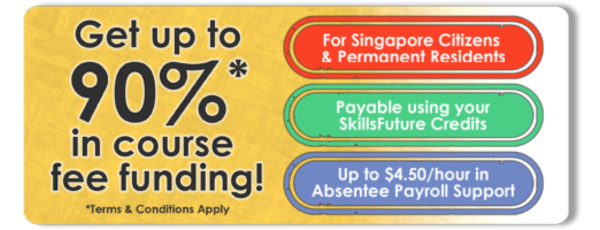
Behavioural Economics in Design
Facilitate the conduct of behavioural economics research activities, to analyse consumer behaviour and uncover insights for influencing it
Module Content
- Principles of behavioural economics
- Applied econometric and psychological research and experimental methods
- Theoretical and empirical tools of behavioural economics
- Process of designing an experiment or survey
- Advantages, disadvantages, criticisms and limitations of behavioural economics
Methodology
Lessons are conducted in a structured yet pragmatic manner as lectures are blended with classroom/group discussions, case studies and presentations. The group discussions give participants the opportunities to share their experience while case studies & presentations help the practice and application of concepts and approaches learned through the course.
Learning Outcomes
- Understand and adapt behavioural economics and its significance in typical design challenges
- Develop an empathetic understanding to examine the factors that drive organisation’s consumer brand, product and/or service offering
- Develop models for irrational economics behaviours based on econometric and psychological research and experimental methods
- Implement barriers and correction measures to influence consumer behaviour in favour of the organisation by means of experiment or survey
- Review and redesign research practices to generate prevailing consumer insights despite the limitations of behavioural economics
- Product Manager, Assistant Manager, Executive, Supervisor, Team Lead in the product development process of an organisation.
- PMEs who have the relevant work experience from other industries or sectors wanting to enhance their knowledge and skills, wanting to expand their job portfolio or are seeking national certification/qualification in the design industry specialising in business
- PMEs and career switchers with supervisory or managerial experience, or individuals in other related industries or wanting to join the design industry specialising in business
- Applicants must be proficient with digital devices and apps to attend the e-learning session and complete all online assessments independently
Participants who achieve at least 75% attendance and pass the end-of-course assessment will be awarded the Statement of Attainment
(FOR ALL 16 Hours course)
Participants who achieve 100% attendance and pass the end-of-course assessment will be awarded the Statement of Attainment
(FOR ALL 4/ 8 Hours course)

Course Schedule
UPCOMING DATES:
Please call 63341080 for more information
TIME:
6.30 pm to 10.30 pm
Mode of Delivery:
Classroom Learning
UPCOMING DATES:
Please call 63341080 for more information
TIME:
TBA
Mode of Delivery:
TBA
Total Training Hours: 16 hours (4 days)
Registration Closing Date: 7 days before course commencement
Course Fees
| CATEGORY | Singapore Citizens & Permanent Residents |
Employer-sponsored and Self-sponsored Singapore Citizens aged 40 years and above | SME-sponsored Local Employees (i.e Singapore Citizen & Permanent Residents |
| FUNDING SOURCE | SkillsFuture Funding (Baseline) |
SkillsFuture Mid-Career Enhanced Subsidy | SkillsFuture Enhanced Training Support for SMEs |
| Course Fees | $700.00 | $700.00 | $700.00 |
| SkillsFuture Funding | $350.00 | $490.00 | $490.00 |
| Total Nett Fee | $350.00 | $210.00 | $210.00 |
| GST (9%) | $63.00 | $63.00 | $63.00 |
| Total Fee Payable to SCCIOB | $413.00 | $273.00 | $273.00 |
Prices shown are not inclusive of application fee and/or any other additional fees that may be stipulated.

UTAP – Get up to 50% Nett Course Fee support as an NTUC Member!
| In-Classroom Training | Synchronous e-learning | |
| TGS Code | TGS-2023018629 | |
| Course Support Period | 03 Feb 2023 to 02 Feb 2025 |
